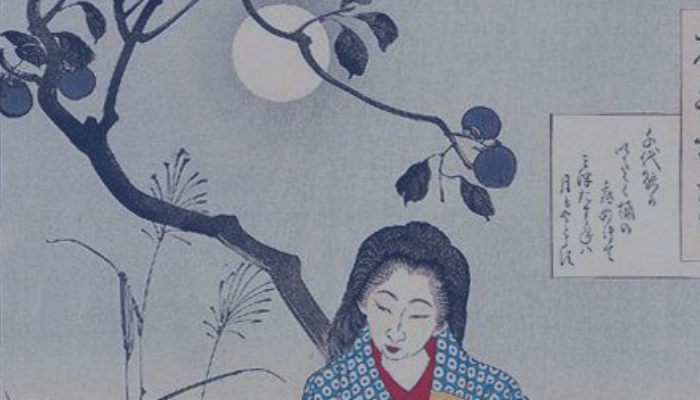This week during our Wednesday night meditation group, the teacher shared this poem with us:
This way and that way
I tried to keep the pail together
Hoping the weak bamboo
Would never break.
Suddenly the bottom fell out:
No more water:
No more moon in the water:
Emptiness in my hand!
– Chiyono
Chiyono was one of the first Buddhist nuns, and this poem tells about the moment of her enlightenment.
She had been living in a temple, working hard to gain enlightenment and struggling because it just wasn’t happening for her. One night she went to fill up a bucket with water from a well and as she walked back she began to gaze at the reflection of the moon in the water she carried.
Suddenly, the bottom of the bucket broke and the water ran out. The moon disappeared from inside the bucket. At that moment she realized the true nature of our existence and became enlightened.
We are all like Chiyono to some degree or another. Carrying around a rickety bucket, anxious that it will break at any moment, convinced that we hold the moon in our hands. But of course, this is a lie. The moon is not in the bucket at all.
And the bucket is our ego.
Impermanence is one of the most challenging concepts we humans have to grapple with. We try our best to live in denial that all things – yes, even that which you hold nearest and dearest to our hearts – will pass away. Even this earth, even the moon will one day pass away. It’s terrifying, really.
So to suppress our terror, we construct stories about who we are and what our ‘purpose’ is on this planet. We build ego-centric identities to carry around our very own, individual reflection of the moon that makes us feel special, and important. As long as we do this, we remain deluded about the nature of reality.
These fantasies are usually tied so deeply to our identities that anything which threatens them immediately becomes an existential threat. So we continue to carry this rickety old bucket, terrified at all times of losing the moon. We fight hard against other people who insist that THEY are the ones carrying the moon. Sometimes it gets to the point where we are willing to destroy one another to preserve these delusions. It’s madness, driven by fear and anxiety.
Which is why the bucket breaking and the moon disappearing is not a bad thing. Even when it feels like it. As things break – as we break – we begin to see the false constructs of our way of being (individually and collectively) and this opens up space for us to realize that we are not individuals or tribes, but an interconnected collective of sentient beings who cannot be happy, healthy or free until every single one of us are. (And this includes non-human beings, too.)
After reading this poem, we prepared to sit in silent meditation and the teacher posed two questions for us to marinade in as we did. I’m posing these questions to you now:
- What feels like it is failing you?
- And what supports you to fail?
Our teacher did not ask us ‘who/what keeps you from failing?’ – because the failure of our ego is what we need.
At the same time, we need support to fall apart as our grandiose beliefs run away, and our version of the moon disappears.
The moon was never in that bucket. The moon is in the sky, where it should be. Where we can all gaze upon its silvery face, remembering that the truth could never have belonged only to us.
p.s. I’m here for you when your bucket fails.

